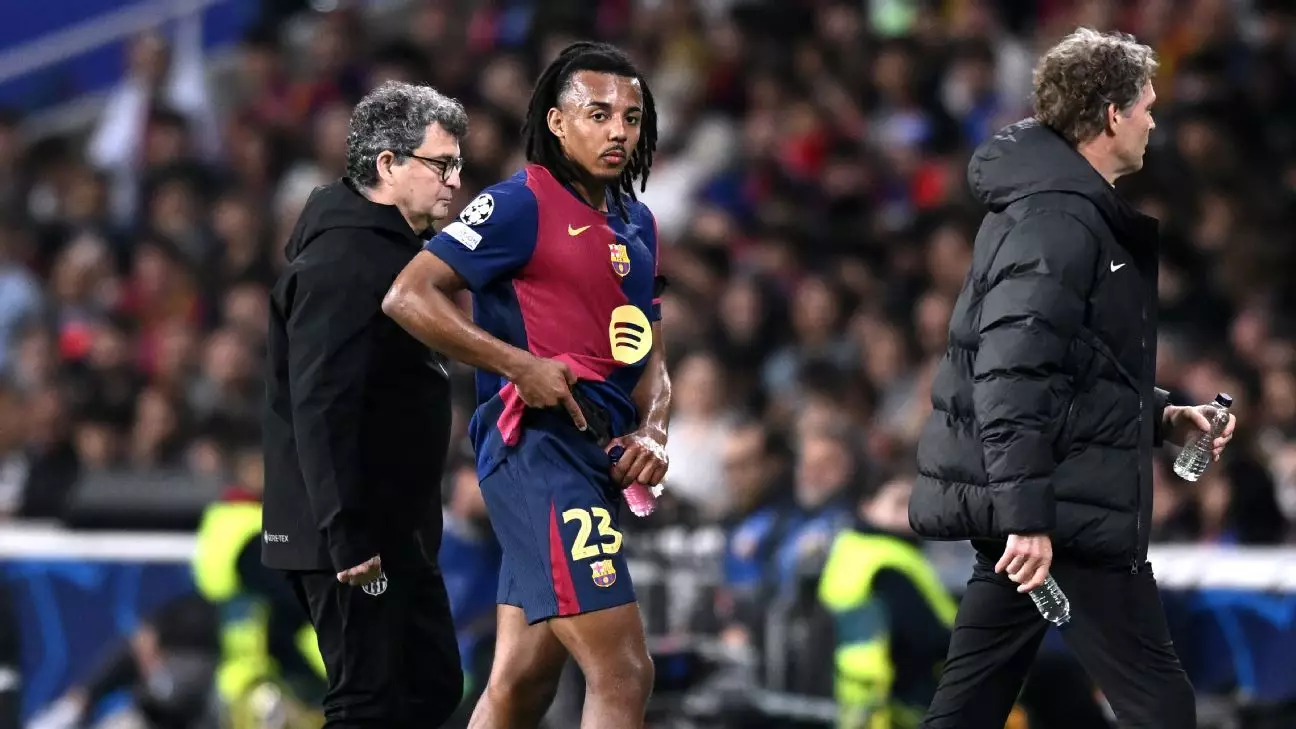In a spirited exchange during a recent post-match interview, Inter Milan striker Marcus Thuram stirred the pot by ranking Barcelona’s rising star, Lamine Yamal, as merely the third best player in the world. Ahead of him, Thuram placed compatriots Ousmane Dembélé and Kylian Mbappé—an assertion that prompts us to dive deeper into the evolution of talent and the fluid dynamics of football’s generational shifts. While Yamal, at just 17, has already taken the football world by storm, it is crucial to assess the weight of experience compared to youthful exuberance.
Yamal’s explosive impact during the recent Champions League clash showcases his undeniable skill and potential. His first goal against Inter, a stunning solo effort that helped pull his team back from the brink, may exhibit a glimpse of a future superstar. Yet, labeling him as the best player currently, as Thuram points out, is perhaps premature. Football thrives on comparisons, but this one illuminates a broader discussion about the criteria we use to assess greatness, particularly when older, seasoned players are still dominating the landscape.
Stats That Speak Volumes: Experience vs. Youth
Looking at the statistics, it’s clear why Dembélé and Mbappé command the top spots in Thuram’s hierarchy. Dembélé’s current form at Paris Saint-Germain is nothing short of extraordinary, boasting a staggering goal count that positions him as a frontrunner for the title of the best in Europe. Meanwhile, Mbappé’s resilience, demonstrated by his transition to Real Madrid—despite its challenges—highlights a level of adaptability that seems to benchmark greatness in today’s game. Notably, both players’ records exemplify seasoned consistency, an attribute that, while enticing, often doesn’t authentically represent the sparkling potential of youthful prospects like Yamal.
The young Spaniard’s impressive early career—a mere two years since his debut—screams promise and excitement. With tallying 15 goals and 24 assists, he seems set to elevate Barcelona to new heights. The question posed by Thuram underscores an essential truth: in a sport that venerates records and past achievements, how can we adequately position a raw talent against players seasoned by years of personal and professional hurdles?
The Balancing Act: Generational Dynamics in Football
What makes talent radiate isn’t merely raw skill but also the resilience and knowledge that come with time. While Yamal’s electrifying play can easily captivate fans and pundits alike, the balance between youth and experience forms a crucial bedrock for any team’s success. Looking ahead to the next leg of the Champions League semifinals, all eyes will be on how Barçelona’s prodigy harmonizes with the team’s veterans engulfed in high-stakes combat against Inter Milan.
Thuram’s perspective is a reminder that the beautiful game continues to evolve, welcoming emerging icons while still holding space for established performers. Each generation necessitates a delicate balance of memories and comparisons. While Yamal’s journey is only beginning, it is a compelling chapter that intertwines with existing legacies. As fans, we find ourselves at a nexus—a celebration of potential tempered by respect for experience. What unfolds next promises to be as riveting as the game itself.

Leave a Reply